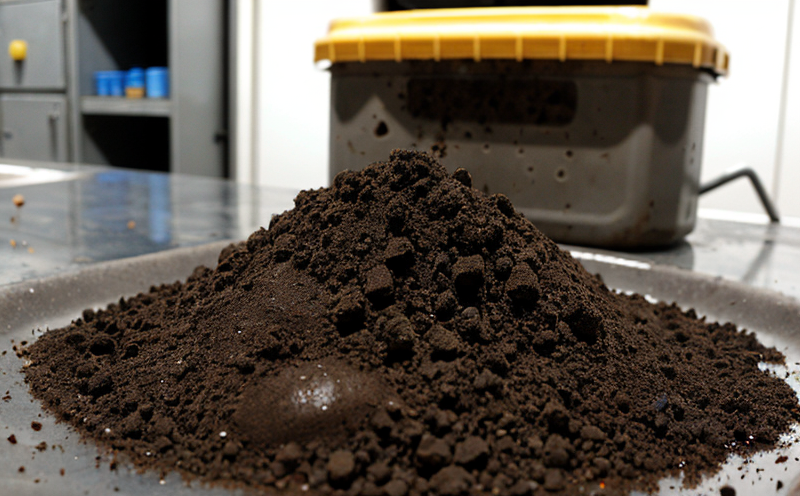Herbal Medicine Residue Contaminant Analysis
In today’s fast-paced world, consumers are increasingly turning to herbal medicines as a natural alternative to conventional pharmaceuticals. However, the quality and safety of these products are paramount for consumer health and satisfaction. Our laboratory specializes in thorough residue and contaminant analysis of herbal medicines, ensuring that they meet stringent international standards and regulatory requirements.
The importance of such testing cannot be overstated. Contaminants can range from pesticides and heavy metals to synthetic compounds and microbial agents. Identifying these residues is crucial for maintaining product integrity and safety. Our team uses advanced analytical methods to detect even trace amounts, ensuring that the herbal products are free from harmful contaminants.
Our testing protocols encompass a wide array of parameters, including pesticide residue levels, heavy metal concentrations, microbial load, and presence of synthetic compounds such as solvents and excipients. By adhering to international standards like ISO 3696 for pesticides, AOAC International methods for heavy metals, and EU guidelines for microbial limits, we provide comprehensive analysis that meets global regulatory expectations.
We understand the complexity involved in analyzing herbal medicines due to their diverse compositions. Our approach involves meticulous sample preparation techniques tailored to each type of herb or botanical extract, ensuring accurate results. The use of state-of-the-art instrumentation such as HPLC (High-Performance Liquid Chromatography), GC (Gas Chromatography), and ICP-MS (Inductively Coupled Plasma Mass Spectrometry) allows for precise quantification.
Our laboratory is equipped with the latest technology to support our comprehensive analysis services. This includes not only chromatographic systems but also advanced spectrophotometric tools capable of detecting even minute contaminant levels. Our analytical methods are designed to identify both known and unknown contaminants, providing a holistic view of the herbal product’s composition.
The importance of residue and contaminant testing extends beyond compliance; it directly impacts consumer trust and brand reputation. By offering reliable test results, we help manufacturers ensure their products meet or exceed international quality standards. Our services are particularly valuable for companies engaged in R&D activities aimed at developing new herbal formulations, as this allows them to identify potential issues early in the development process.
Our expertise is further enhanced by our commitment to continuous improvement and staying abreast of the latest developments in analytical techniques. This ensures that we can provide accurate and reliable results that are not only compliant with current regulations but also anticipate future requirements.
Applied Standards
| Standard | Description |
|---|---|
| ISO 3696:1991 | Pesticide residues in foods of plant origin – Determination by gas chromatography with flame ionization detection. |
| AOAC International Method 2007.08 | Method for the determination of heavy metals in food and feed. |
| EU MRLs (Maximum Residue Limits) | Regulations regarding allowable levels of pesticides in agricultural products. |
| USDA Food Safety Standards | A set of regulations ensuring food safety and quality. |
Benefits
- Ensure compliance with international standards and regulatory requirements.
- Identify potential contaminants early in the product development cycle to avoid costly delays.
- Promote consumer trust by providing accurate, reliable test results.
- Enhance brand reputation through consistent quality assurance practices.
- Avoid legal issues and financial penalties associated with non-compliance.
- Support R&D activities by detecting potential safety concerns early on.
- Facilitate the entry of products into international markets by meeting local regulations.
International Acceptance and Recognition
The tests conducted at our laboratory are recognized globally for their accuracy and reliability. Our compliance with international standards like ISO, AOAC International, and EU guidelines ensures that the results we provide are accepted across various jurisdictions. This recognition is particularly crucial for companies exporting herbal products to countries with stringent import regulations.
Our laboratory has been accredited by respected bodies such as ANSI (American National Standards Institute) and CNAS (China National Accreditation Service). These accreditations validate our commitment to quality and provide assurance that the results we generate are credible. By choosing us, clients can be confident that their products meet both domestic and international standards.
The global nature of our services means that we understand the nuances of different regulatory environments. Whether it’s ensuring compliance with FDA (Food and Drug Administration) regulations in the United States or adhering to GMP (Good Manufacturing Practice) guidelines in Europe, we have the expertise to meet these varied requirements.





